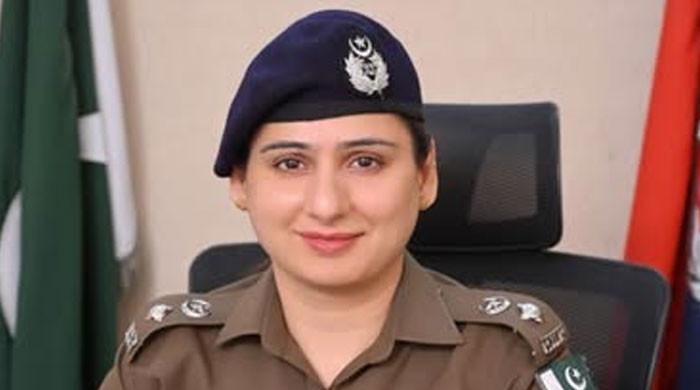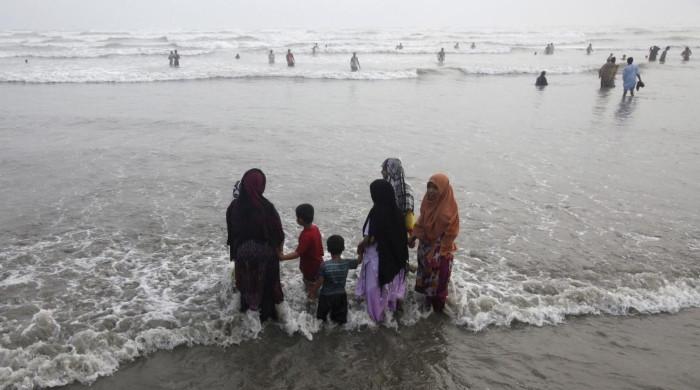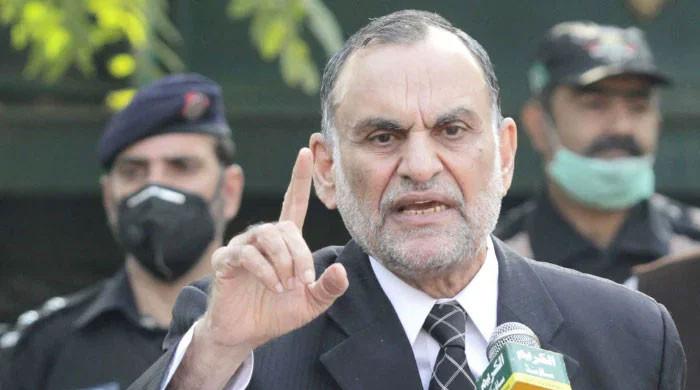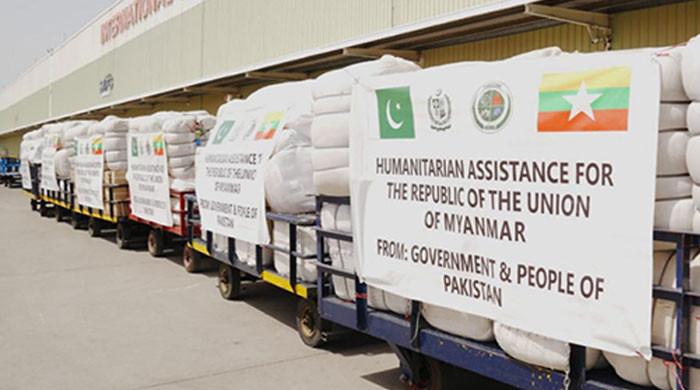Balochistan permits public transport subject to following coronavirus SOPs
Balochistan government warned that public transport may be suspended again in case of severe violations of the coronavirus SOPs
June 07, 2020
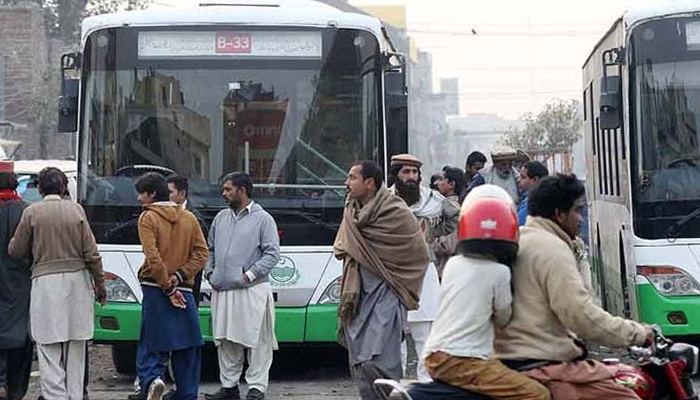
QUETTA: The government of Balochistan has followed its Sindh and Punjab counterparts in allowing public transport to resume under the condition that standard operating procedures (SOPs) to prevent against the deadly coronavirus be followed strictly, according to a notification issued Sunday.
As of Sunday, Pakistan has cumulatively recorded more than 100,100 cases of the deadly respiratory illness while more than 2,000 people have succumbed to it.
The notification from the Balochistan government requires transporters to spray disinfectants in their buses and ensure that every second passenger seat remains empty. The availability of sanitisers in buses was also obligatory for public transport service providers.
Furthermore, every passenger would be checked using thermal scanners before boarding public transport and any person without a face mask or exhibiting coronavirus symptoms, including fever, would not be allowed to travel, the notification said.
Related: Face masks to be made mandatory in public as Pakistan gradually lifts curbs
In addition, no more than three people would be allowed to travel in a taxi, the provincial government specified.
The Balochistan government added that a violation of the coronavirus SOPs would result in action against the transporters as well as the passengers.
Public transport may be suspended again in case of severe violations of the SOPs, the notification warned.
Balochistan has registered more than 6,200 coronavirus cases and over 50 deaths to date. The Sindh and Punjab provinces were neck-to-neck in the total number of infections, at over 38,000 and 37,000, respectively, whereas Khyber Pakhtunkhwa followed with almost 13,500 cases.
Read more: Sindh outlines SOPs for intracity bus travel after lifting transport restrictions
Earlier this month, the government of Sindh had allowed the resumption of public transport following persistent pressure from the bus operators and an ease in the country-wide lockdown announced by Prime Minister Imran Khan.
It issued a notification outlining the SOPs to be followed by bus operators for intra-city travel within districts but stressed that the services from one district to another shall remain closed, as shall those for travel between provinces.
The government of Punjab, on the other hand, had resumed public transport back in May following an outcry by transport owners in the province over a lack of collaboration on SOPs and reduced fares.
The provincial government's notification had contained directives for owners of buses and mini buses, terminals, passengers, drivers, and conductors.
Also read: Punjab outlines SOPs for intercity bus travel after transporters decry reduced fares
The decision came on the back of a protest by public transport owners who had refused to resume operations in Punjab until the provincial government set up SOPs after consulting them and took back the decision to offer a 20% reduction in fares.
All Pakistan Public Transport Owners Federation (APPTOF) Chairperson Asmatullah Niazi had said he was informed that anyone over 50 years of age — be they a passenger, driver or conductor — would not be allowed on the bus.
"There's a 20% cut in fares and now 50% fewer customers [...] We have to pay toll taxes, traffic challans from the motorway police, bus stand charges, and various other expenses as well.
"We cannot run public transport operations with 90% deficit," Niazi had added.
Last month, PM Imran had defended his government's decision to ease the coronavirus lockdown, saying: "We have to live with the virus this year."
Related: 'We have to live with coronavirus,' says PM Imran
He spoke about reopening public transport, insisting that all decisions were made with a consensus between the provinces and that due to reservations from some of them, transport had not been reopened.
"I believe that whatever steps we take must take into account helping the most affected — our lower income strata of society [...] when we shut public transport, we must remember we are making life difficult for the poor.
"So I request everyone to open public transport. America has not shut it, Europe hasn't," he had said. "Why have we?"
Back in March, the premier had stressed upon reviewing the "extreme steps" taken by the provinces to contain the spread of the coronavirus as these would "impact the economy drastically". He had called for the lifting of the ban on transport, saying it was badly affecting the supply of essential items in Pakistan.
“Gilgit-Baltistan is facing fuel shortage and yesterday, supply from the port was stopped due to the lockdown in Karachi, and we had to take necessary steps in this regard,” the prime minister said, claiming that there was no precedence in the world of such a lockdown.





